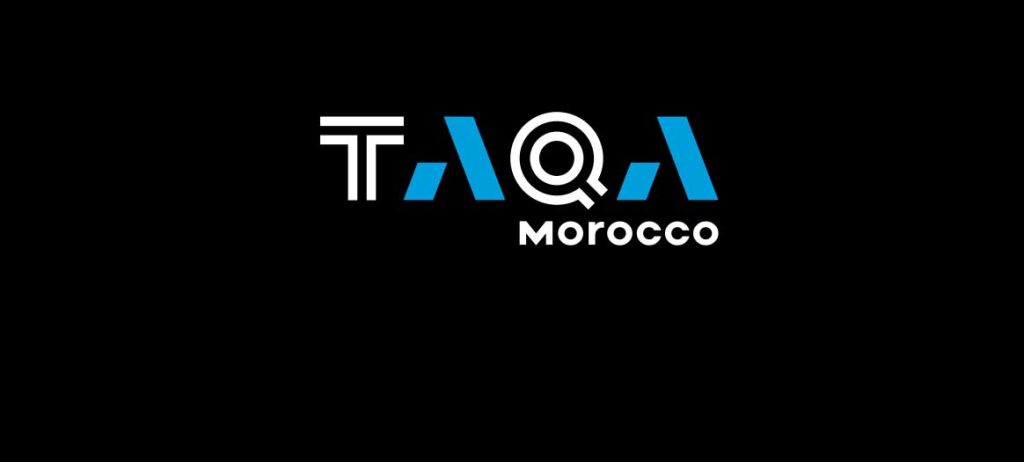As global expectations rise around ethical sourcing, environmental stewardship, and responsible supply chains, procurement has emerged as a critical lever for delivering meaningful ESG outcomes. Sam Achampong, Regional Director for the Chartered Institute of Procurement & Supply (CIPS) across the Middle East, Africa, and Asia Pacific, has been at the forefront of this transformation.
In this Executive Insight, Sam shares how CIPS is helping governments, multinationals, and procurement professionals embed sustainability into their strategies, not just through policy, but through measurable action. From deploying frameworks like ISO 20400 and the CIPS Procurement Excellence Standard, to advancing third-party ESG assurance, Sam highlights why procurement must be both principled and pragmatic to meet the demands of today’s complex global landscape.
Sustainability in Procurement Leadership: CIPS is a global advocate for ethical and sustainable procurement. In your leadership role across the Middle East, Africa, and Asia Pacific, how are sustainability metrics being integrated into procurement strategies, and what frameworks does CIPS recommend for embedding them effectively?
In my leadership role across the Middle East, Africa, and Asia Pacific, sustainability metrics are increasingly being embedded into procurement strategies through clear alignment with established frameworks such as ISO 20400 (Sustainable Procurement). This allows organisations to set measurable targets around carbon reduction, ethical sourcing, and circular economy practices.
We’re actively working with a wide range of stakeholders, including governments, multinationals, and public-sector organisations, to implement the CIPS Procurement Excellence ESG programme. This initiative is specifically designed to promote continuous improvement and best practice across procurement, supply chain, and ESG functions. To support capability building, we also provide training and certifications such as the CIPS Ethical Procurement and Supply certificate and the globally recognised CIPS kitemark.
CIPS recommends that sustainability be embedded throughout the procurement lifecycle, from category strategy development and supplier selection to contract performance management. This involves assessing suppliers’ environmental and social impact, adopting life cycle costing approaches, and integrating KPIs such as CO₂ reduction, waste minimisation, and fair labour practices directly into procurement processes.
Ultimately, embedding sustainability into procurement requires more than just frameworks and policies. It calls for a cultural shift that positions procurement as a key enabler of responsible growth, long-term resilience, and value creation across global supply chains.
Driving Sustainable Sourcing Across Diverse Markets: With your oversight across regions at different stages of development, what specific steps has CIPS taken to promote sustainable sourcing practices, and how do you tailor these efforts to meet the unique challenges of each market?
Our aim is to support organisations at their unique stages of ESG maturity. These maturity levels aren’t defined solely by geography but also by industry sector and category of spend. For instance, the FMCG sector often demonstrates a more advanced supply chain maturity, whereas the construction industry faces distinct and complex ESG challenges. In regions like the Middle East, these challenges are further amplified, requiring innovative and context-specific solutions, particularly in the construction space.
CIPS has partnered with a wide range of organisations to promote sustainable sourcing practices. Entities such as the Federal Tax Authority (UAE), BAPCO, and the UAE Space Agency have earned the CIPS Corporate Ethics Kitemark, showcasing their commitment to ethical and responsible procurement. Additionally, organisations like Dubai’s Roads and Transport Authority (RTA), Qatar Foundation, and NEOM have achieved the CIPS Procurement Excellence Standard, demonstrating not only adherence to best practice but also a dedication to continuous improvement.
These recognitions are more than just certifications; they reflect a deeper commitment to embedding ESG principles into core procurement strategies. At every stage, we work closely with stakeholders to tailor our guidance, ensuring relevance to the unique regulatory, environmental, and operational dynamics of each market.
Benchmarking Supplier Sustainability Credentials: From a CIPS perspective, what tools or criteria do you advise organisations to use when assessing the sustainability performance of their suppliers? How important is third-party verification in this process?
CIPS strongly advocates a structured, risk-based approach to assessing supplier sustainability. Recommended tools include pre-qualification questionnaires aligned with international standards such as ISO 14001 (Environmental Management) and ISO 45001 (Occupational Health & Safety), alongside supplier sustainability scorecards and clearly defined KPIs related to environmental impact, ethical labour practices, and social responsibility.
ESG data platforms like EcoVadis and Sedex play a key role in helping organisations benchmark supplier performance and track improvements over time. Lifecycle analysis can also be particularly useful in identifying product-level environmental impacts.
Third-party verification is highly encouraged. It provides independent assurance that suppliers are genuinely meeting their sustainability commitments. Verified certifications and accredited audits reduce the risk of greenwashing and demonstrate due diligence to regulators, investors, and stakeholders. While self-assessments can offer an initial view, third-party validation becomes critical in high-risk categories or when sustainability performance is contractually significant.
Through the CIPS Procurement Excellence ESG standard, we incorporate all of these elements into a single, comprehensive assessment, offering independent accreditation that validates an organisation’s ESG performance and commitment.
Cost vs. Commitment to Sustainability: Balancing cost-efficiency with sustainability can be a challenge. How does CIPS support procurement professionals to maintain sustainability goals without compromising financial performance?
Cost and sustainability are not mutually exclusive. The very definition of procurement is “the actions to obtain goods and services at the lowest total cost of ownership.” The key variable here lies in how we define and calculate that total cost of ownership, and in today’s world, that must include ESG considerations.
Sustainability is defined as “meeting the needs of the present without compromising the ability of future generations to meet their own needs.” Therefore, when evaluating total cost of ownership, procurement professionals must assess not only financial impact, but also long-term environmental and social implications.
CIPS supports this by guiding organisations to embed ESG factors into cost analysis, training, and strategic decision-making frameworks. It should not be considered optional to knowingly procure in an unsustainable way, doing so violates the core principles of procurement itself, by neglecting the true total cost of ownership.
Showcasing Global ESG Impact: You’ve had the opportunity to work with organisations and governments across multiple continents. Can you share a few standout examples of sustainable procurement or ESG initiatives that have had a measurable impact, either through CIPS involvement or regional leadership?
Across the regions I oversee, we’ve partnered with a wide range of organisations at different stages of ESG maturity, tailoring our support to sector-specific challenges and local market dynamics. For instance, in the construction sector, particularly in the Middle East, we’ve helped organisations navigate unique sustainability obstacles by encouraging creative, regionally appropriate solutions.
Some standout examples include our work with the Federal Tax Authority (UAE), BAPCO, and the UAE Space Agency, all of which achieved the CIPS Corporate Ethics Kitemark, demonstrating strong commitments to ethical and sustainable procurement practices.
We’ve also worked with major public and private sector bodies such as Dubai’s Roads and Transport Authority (RTA), Qatar Foundation, and NEOM, who have attained the CIPS Procurement Excellence Standard. These achievements reflect measurable progress in embedding ESG into procurement strategy, governance, and continuous improvement frameworks.
Each of these examples underscores the broader shift toward procurement as a strategic driver of sustainable development, and shows how ESG is becoming an integral part of performance and value creation on a global scale.












